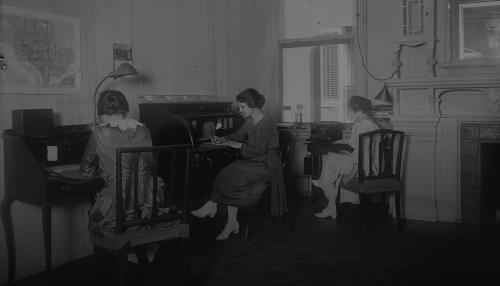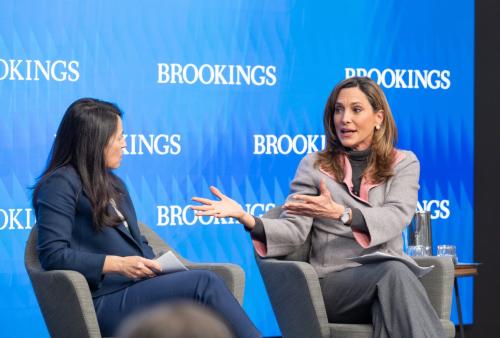The right of citizens of the United States to vote shall not be denied or abridged by the United States or by any state on account of sex. Congress shall have power to enforce this article by appropriate legislation.
The 19th Amendment to the U.S. Constitution gave American women the right to vote and was ratified in August 1920. In this the centennial year of this milestone in women’s political equality, Brookings has launched a new series on gender equality in which Brookings scholars, public officials, and other experts examine not only the imperfect implementation of women’s political participation but also how gender equality has evolved since 1920 and the social, economic, and political forces that have kept the United States from achieving full gender parity.
On this episode of the Brookings Cafeteria, Senior Fellow Isabel Sawhill leads a conversation with Stephanie Aaronson, the vice president and director of Economic Studies at Brookings, and Molly Kinder, a David M. Rubenstein Fellow in the Metropolitan Policy Program, about some of the key issues in women’s participation in the workforce and society, with attention to the gender impact of the coronavirus pandemic.
Subscribe to Brookings podcasts here or on iTunes, and send feedback email to [email protected].
The Brookings Cafeteria is part of the Brookings Podcast Network.
The Brookings Institution is committed to quality, independence, and impact.
We are supported by a diverse array of funders. In line with our values and policies, each Brookings publication represents the sole views of its author(s).










Commentary
PodcastGender equality, unpaid work, and women’s suffrage
May 15, 2020
Listen on
Brookings Cafeteria Podcast